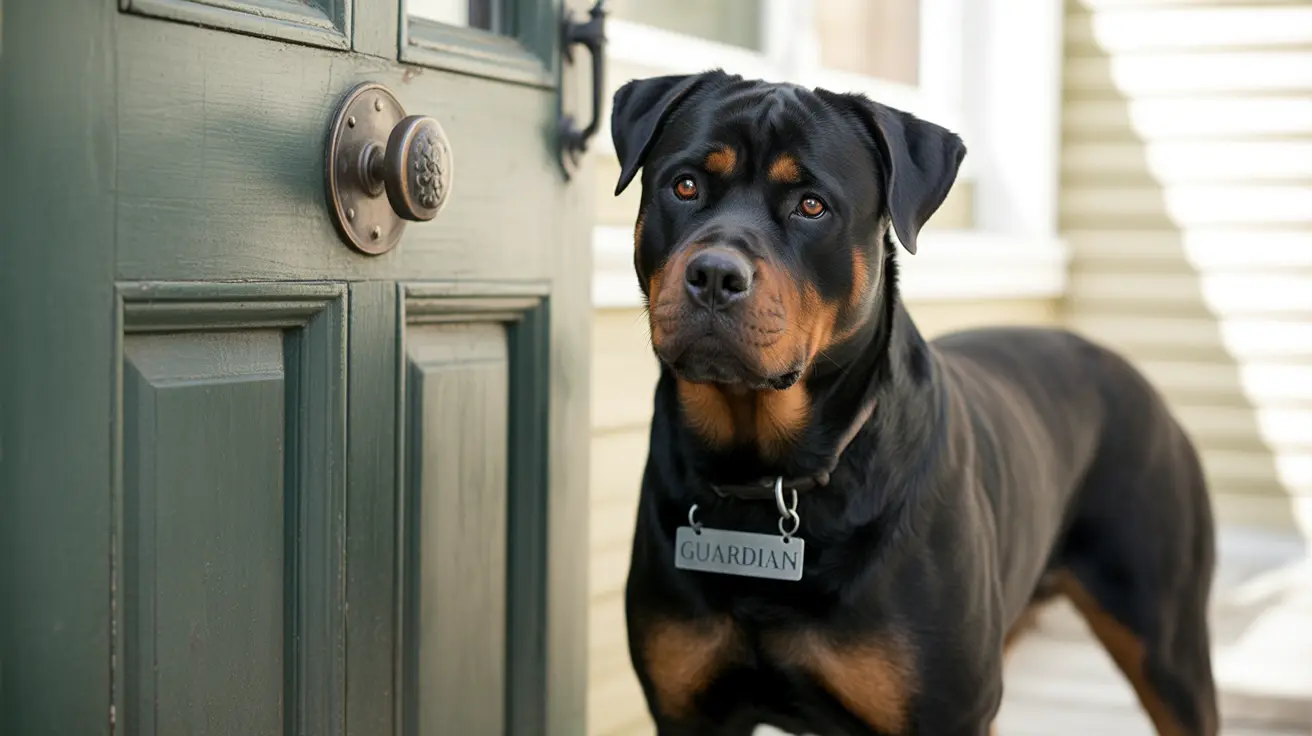Natural Guarding Instincts and Capabilities
Rottweilers possess an impressive array of natural traits that make them exceptional guard dogs. Their territorial nature, combined with an innate protective instinct, creates a watchful guardian that's always alert to potential threats. These dogs have maintained their protective instincts from their ancient Roman origins, where they served as both herding dogs and protectors.
Their imposing physical presence alone serves as a powerful deterrent. Adult Rottweilers typically weigh between 80-135 pounds and showcase a muscular, confident stance that naturally discourages unwanted visitors.
Intelligence and Trainability
Ranked among the top 10 most intelligent dog breeds, Rottweilers demonstrate exceptional capacity for training and decision-making. They can quickly learn complex commands and show remarkable ability to assess situations, making them both trainable and reliable in their protective duties.
These dogs excel at distinguishing between routine activities and genuine threats, responding appropriately to different situations when properly trained. Their intelligence also means they're less likely to show unnecessary aggression, preferring to observe and react only when truly needed.
Family Integration and Protective Balance
Despite their formidable reputation, well-trained Rottweilers are known for being gentle giants within their family circle. They form deep bonds with their human family members and are particularly patient with children when properly socialized. This combination of gentleness and protective instinct makes them ideal family guardians.
Their protective nature extends naturally to all family members, creating a safe environment while maintaining a loving, affectionate relationship with their human pack. This balance is crucial for their success as both family pets and guard dogs.
Training Requirements and Socialization
Successful guard dog training for Rottweilers requires a comprehensive approach that begins in puppyhood. Early socialization is crucial, exposing them to various people, animals, and situations to develop good judgment and appropriate responses.
Professional training is highly recommended, especially for first-time Rottweiler owners. This helps establish proper boundaries and ensures the dog develops controlled protective behaviors rather than unfocused aggression.
Responsible Ownership Considerations
Owning a Rottweiler as a guard dog comes with significant responsibilities. These include regular exercise, consistent training, and ongoing socialization throughout their lives. Owners must also be aware of local regulations and insurance requirements regarding the breed.
Daily physical activity and mental stimulation are essential to prevent boredom and maintain their effectiveness as guard dogs. A tired Rottweiler is more likely to remain calm and focused when needed.
Frequently Asked Questions
How do I train my Rottweiler to be an effective and reliable guard dog?
Start with basic obedience training and early socialization. Focus on positive reinforcement methods and gradually introduce specific guard dog commands under professional guidance. Consistency and patience are key to developing a well-balanced guard dog.
What socialization steps are essential to ensure my Rottweiler is protective but not aggressive?
Expose your Rottweiler to various people, animals, and environments from puppyhood. Arrange controlled meetings with friendly strangers and reward calm, appropriate behavior. This helps them learn to distinguish between normal situations and genuine threats.
Can Rottweilers be safe and gentle family dogs while still acting as watchdogs?
Yes, with proper training and socialization, Rottweilers excel at balancing family affection with protective duties. They're naturally gentle with family members while remaining vigilant against outside threats.
What are the key obedience commands I should teach my Rottweiler for guard dog training?
Start with basic commands like sit, stay, come, and leave it. Progress to advanced commands such as "watch," "alert," and "quiet." These form the foundation for more specialized protection training.
What responsibilities and challenges come with owning a Rottweiler as a guard dog?
Key responsibilities include consistent training, regular exercise, proper socialization, and understanding local breed-specific legislation. Challenges may include insurance restrictions, the need for secure fencing, and commitment to ongoing training and exercise requirements.
Conclusion
Rottweilers make exceptional guard dogs when provided with proper training, socialization, and consistent leadership. Their natural protective instincts, combined with intelligence and loyalty, create a reliable guardian that can also be a loving family companion. Success with a Rottweiler guard dog requires dedication to training, understanding of the breed's needs, and commitment to responsible ownership.






